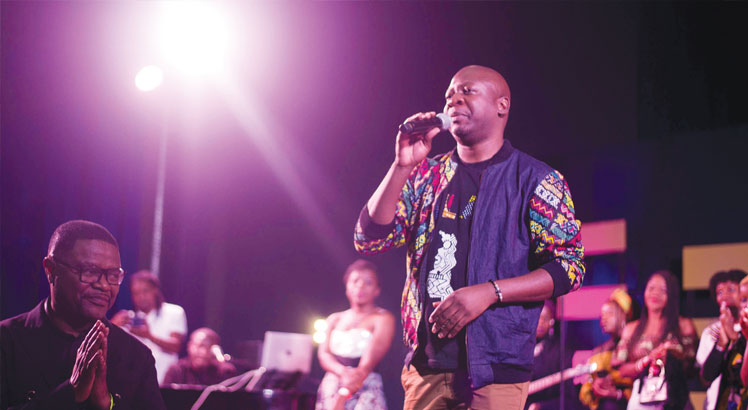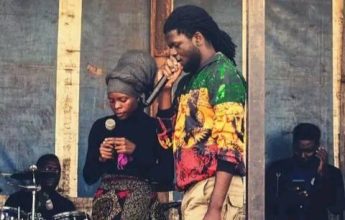Awakening the spirits
Growing up back then before the 1990s most people will remember how they used to singing ‘Gona Mwana’ to their siblings or how parents used to woo children into sleeping by repeatedly chanting ‘Lululu mwana alira’.
The tone, melody as well as pitch accompanied kicking of the child who is carried on the back, putting the child to comfort. The child’s response was almost spontaneous; stops crying.
And then there was the moonlight singing, Mwezi Uwale in vernacular not forgetting Pamtondo where women, gather to pound grain to remove husks in readiness for milling, would sing in order to ease the burden.

These folksongs and many others are almost forgotten in the Malawi cultural fabric. Yet singing and music playing are an important part of Malawi culture. All the more than 13 ethnic groups of the country are rich in singing and music playing.
Realising the need to preserve the folksongs amongst other country’s cultural heritage, Music Crossroads Malawi (MCM) is documenting Malawian folksongs as a pilot of a much bigger project for the country.
“There is lack of interest in our cultural traditions especially among the young generation and town dwellers. Consequently, there is little pride in local culture by the youth who have embraced foreign cultural elements without deeper understanding.
“There is thus a widening cultural gap between the young and older generations due to modernity and technology. This is in contrast to the belief that it is the peoples’ cultural traditions that offer them their unique identity. We are therefore documenting all the folksongs so that they are distributed in scoops across the country,” Music Crossroads director Mathews Mfune.
Although the Expressive Arts subject was introduced in primary schools in Malawi a few years ago, there has not been a deliberate policy or program by government to collect and document as many songs as possible in a structured way that will promote its usage and preservation.
This according to Mfune has largely been attributed to the fact in the past, music has not been prioritized as an examinable subject despite having tutors in teacher training colleges.
“This would have encouraged sourcing of materials and therefore, their availability. It is also true that national media houses which, are the main vehicle of promoting folk songs and dances, thereby exposing them to the new generations, have not put much emphasis on cultural traditions. This has led to reduced youth participation thereby creating challenges to the old notion of passing such traditions from generation to generation by way of practice.
“Folk songs are at a greater risk of disappearing behind the scenes if nothing is done to preserve them and raise the cultural consciousness of the youth and town people. Through our project intervention, we will make sure that the folk songs are professionally collected, performed and documented in formats that are easy to use with the current technologies like CD and DVD formats,” he explained.
While these formats make it possible to preserve the quality of the recordings and for use on radios and television stations for a wider public consumption and promotion, the project will also publish books of the same.
“Music Crossroads has the expertise to transcribe and sort these folk songs, and with help from other organisations publish song books for distribution to the schools. The idea of publishing the folk songs in a book comes with the knowledge that not all areas have access to technology that uses CDs or DVDs due to high costs of acquiring them or lack of electricity services.
“Transcribing and translating them from local languages to English will ensure that the original form of the songs is preserved and a wider audience can also use and research on them. Such undertaking is aimed to generate interest by our children not only to appreciate our culture but also take active role in promoting and preserving it. The collection will offer ready materials for use in the schools hence supporting government initiative of introducing the expressive arts in schools,” he said.
The project team in liaison with District Commissioners will identify the target villages and the practitioners of the folk songs to be collected. This will be done by referring to the data made available through desk research as well as consulting chiefs and village elders who are regarded as custodians of their culture and know who and where exactly to collect the folksongs.
“A list of folksongs and their practitioners will then be produced and used to guide the second sub-activity which is collection. 60 songs will be collected from each region making a total of 180 folksongs.
The researcher will translate the folk song words into English with the assistance of a community member during field work. We envisage that it will take two years to accomplish the project,” said Mfune.
As MCM waits for the takeoff of the project, it is running a pilot program through the establishment of The Pakhonde Ethno Music Camp, an initiative of Music Crossroads.
“This camp will allow us experiment what we want of the main project, but also a learning platform. We are very keen on participating in the documentation, revival and development of our ethnic/traditional music by among other things coming up with innovative initiatives.
“The Pakhonde Ethno Music Camp and Festival is such one initiative that we in conjunction with renowned ethno musician Charles Mkanthama based Ntchisi are organising at the beginning of March in 2016.
Other interested institutions are welcome to join,” he stated.
Music and dancing are an important aspect in the development of any society. Like in other parts in Africa, the people of Malawi have several musical instruments for different dances. The music camp will be a ground for showcasing some of the traditional music instruments of the country.
“The music camp will be held at Ntchisi Boma with a concert as one of the main activities. We shall focus on local musical instruments such as bangwe, kaligo, sansi, gule wamkulu drums, mkangala, mangolongondo,” he said.
There will also be performances of local folksongs by people from Ntchisi. There will also be Brazilian instruments plus folk rhythms from Norway and Mozambique.
“The camp will involve in depth workshops on each of the instruments; practice, tuning and repairing, workshops with school children, concert rehearsal and improvisation and jamming. All these activities will be documented both on still pictures, audio and videos and will later be edited and packaged to promote the project at local and international level.”





